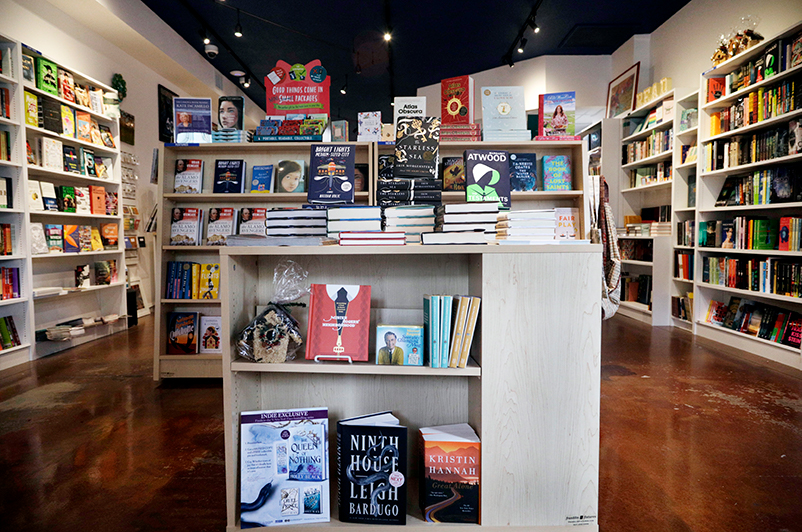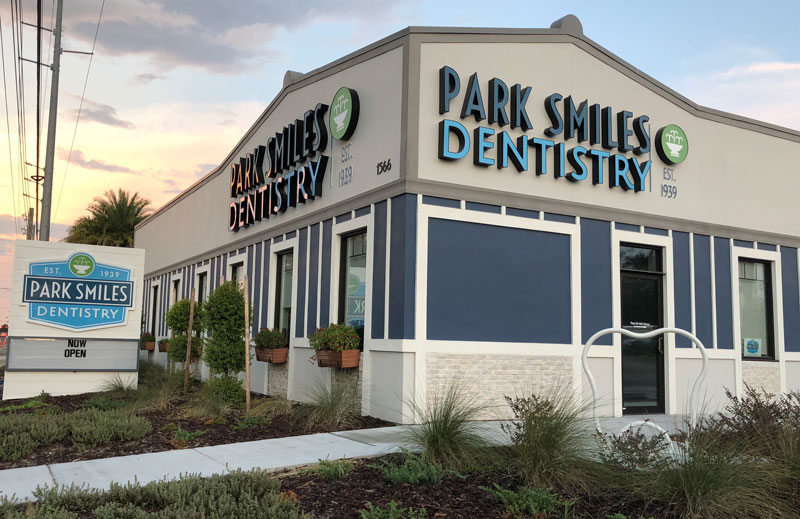Photography by Rafael Tongol
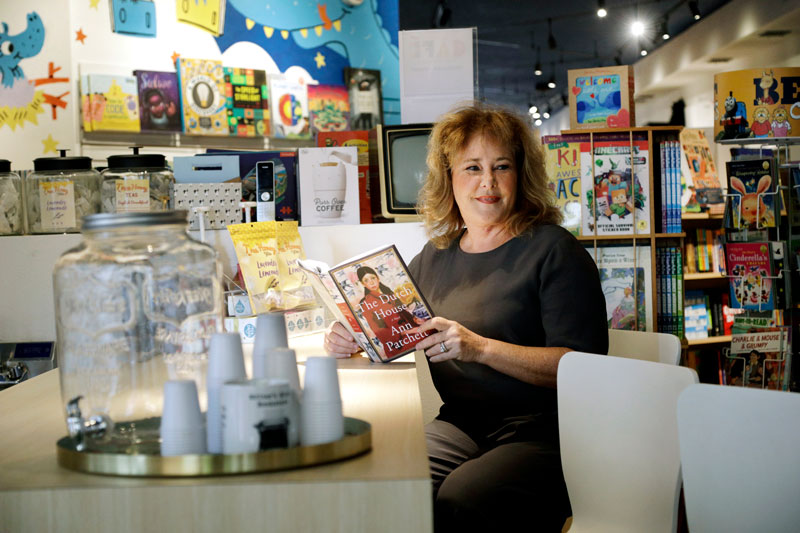
To paraphrase Mark Twain, reports of the death of independent bookstores — much like similarly grim pronouncements regarding Tylenol, Tiger Woods and vinyl records — were greatly exaggerated.
Had the rampant R.I.P.’s been accurate, Lauren Zimmerman would be practicing law or doing social work today — not fine-tuning the new Park Avenue location of Writer’s Block Bookstore, which she launched in 2014 around the corner on East Welbourne Avenue.
Recalls Zimmerman: “People said, ‘You’re out of your mind, why are you doing this? I thought [independent bookstores] were extinct. I shop on Amazon.’ Well, I wasn’t going to not do it. I mean, how do you go through life that way?”
Zimmerman adds that there were also plenty of naysayers — whom she pointedly ignored — when she decided to enroll in law school in her late 30s. “For people who’ve known me all my life, it wasn’t a surprise that I did this,” she says. “I’ve always been the kind of person who, when I say I want to do something, I do it.”
At 62, the energetic Zimmerman has the heart of a bookworm and the work ethic of a honeybee — ideal traits for her vocation. But selling books wasn’t a career that she ever anticipated. It was a destiny arrived at via a circuitous route and a moment of serendipity in early 2014.
“I’m one of those professional students,” says Zimmerman, who majored in pre-law at the University of Central Florida (then Florida Technological University) before earning an interior design degree at the University of Florida.
After working locally as a commercial space planner, she revisited her original career goal and graduated from St. Thomas University’s School of Law in 1995. She then opened a practice in Orlando specializing in children and dependency, and married Scott Zimmerman, president of AGPM, a property management company with about 6,500 apartment units in its portfolio.
When Zimmerman stopped practicing law — the hours had become problematic for a mother of three — she decided to pursue social work and was within one course of completing a master’s degree at UCF when she happened to hear an interview on NPR with novelist Ann Patchett.
The subject of the discussion was Patchett’s Nashville bookstore, Parnassus — named for the mountain in Greek mythology that was the seat of literature, learning and music — and how the endearing establishment brought the community together and “valued books and readers above muffins and adorable plastic watering cans.”
For Zimmerman, the interview was an epiphany: “I pulled over on the side of the road and called my husband and said, ‘I think I want to open a bookstore,’ And he said, ‘Go for it!’ I didn’t show up for that last class in the fall.”
FINDING A HOME
Patchett, who penned the novel Bel Canto and other bestsellers, may have supplied the inspiration for the “crazy” idea. But the perspiration required to make it happen was all Zimmerman’s. “It’s a very hard job, much harder than I thought it would be,” she says.
First, she needed to locate a suitable space: “It had to be in an affluent area, where the community could support a bookstore.” Park Avenue came immediately to mind, but Zimmerman also flirted briefly with opening a store in Winter Park Village.
She was dissuaded, however, by indie bookstore veterans to whom she turned for advice: “They said shopping centers are not your friend, unless you only want to do business on Friday and Saturday nights after the movies.”
Zimmerman eventually found a vacancy on Welbourne Avenue, a side street just off Park Avenue. “It wasn’t the best location, but it was downtown Winter Park — it met the qualification,” she says. “I knew people would eventually find it.”
Prior to Writer’s Block, there hadn’t been an independent bookstore downtown since Park Books — originally The Little Professor — closed in 1994. A nearby chain bookstore, B. Dalton, lasted until 1999. (Yes, there was Brandywine Books in Greeneda Court. But it stocked only second-hand titles.)
Under the circumstances, it’s not surprising that until Zimmerman came along no one was eager to invest in bricks-and-mortar bookselling, even in an affluent city filled with writers and readers.
Between 1995 and 2000, the number of indie bookstores in the U.S. — bleeding customers to Waldenbooks, B. Dalton, Barnes & Noble and Borders — fell 43 percent, according to the American Booksellers Association.
The debut of Amazon in 1995 was expected to deliver the fatal coup de grace. But a funny thing happened on the way to extinction. Amazon was an existential threat to big boxes across the retail landscape, including chain bookstores. By 2011, Borders, B. Dalton and Waldenbooks had folded and Barnes & Noble was losing stores.
But in the process of decimating their major retail competitors, the online colossus had inadvertently given nichey independent bookstores a new lease on life. Between 2009 and 2015, their number rose 35 percent, from 1,651 stores to 2,227. At last count, in 2018, the total was 2,524.
How did this happen? A perfect storm of cultural churn. Indies such as Writer’s Block found themselves occupying a nostalgic sweet spot as sterile mall culture withered and downtowns were reinvigorated as centers of community life.
“Independent bookstores have become anchors of authenticity,” says Harvard professor Ryan Raffaelli, who has studied the great revival. “This is almost like a social movement.”
Indies were in the vanguard of the “buy local” movement, offering perks not available on Amazon: lectures, book signings, game nights, reading groups, children’s story times and shelf space for local authors. Most important, the stores were run by proprietors who genuinely loved books and knew what their customers enjoyed reading.
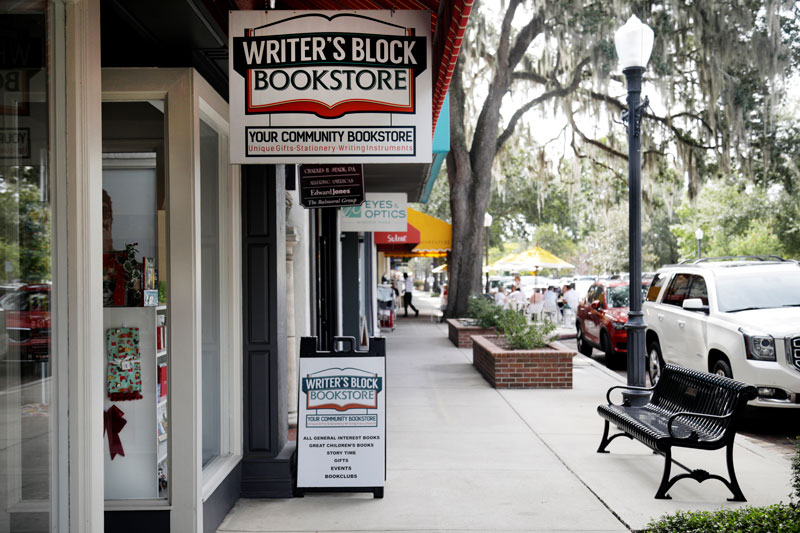
TURNING THE PAGE
“When people come in, they feel safe; they don’t feel they’re obligated to buy,” says Zimmerman, whose literary preferences lean toward historical fiction. “Even if you’re not a reader, you still like going through the books and being around people. If you were in a bad mood when you walked in, you were in good mood when you walked out.”
Naysayers notwithstanding, customers did indeed find their way to the cozy bookstore on Welbourne Avenue. “I was growing out of that space,” Zimmerman adds. “Events were a nightmare. It was hard on the authors. People would get stuck in the hallway and they could only hear — they never got to sit down.”
Last September, Writer’s Block began a new chapter when the Zimmermans bought the building at 316 North Park Avenue, formerly home to The Impeccable Pig, a boutique that moved a few blocks south. Aptly, the bookstore’s next-door neighbor is Tugboat & the Bird, an independent children’s gift and clothing store. Take that, Amazon.
The 5-minute walk from Welbourne to Writer’s Block’s new digs is an exercise in so-near-yet-so-far, like turning the corner from Baltic Avenue to Park Place on a Monopoly board. “The exposure is going to make a huge difference,” states Zimmerman.
The store is 500 square feet more spacious than it used to be. But it seems even larger than that because of light streaming in through tall windows up front and a covered patio — complete with cozy furniture — outside the rear door. There’s also a coffee bar tucked in the back corner.
Although the space features several welcoming nooks and crannies, it’s essentially a long, open expanse without the warren of separate rooms that made the Welbourne location feel so cramped.
On her first walk-through, Zimmerman knew what could be done: “I saw it. I saw the tables, I saw everything. There’s a lot of joy in seeing something before it’s built.” Such moments of rhapsodizing are an indulgence Zimmerman allows herself before returning to her natural worry-bead mode.
“There are lots of challenges with this space,” she frets. “There’s no guarantee it won’t fail. I worry about sales, I worry about staff, I worry about inventory, I worry about events. I worry about…everything. My husband says just make sure you enjoy what you’re doing. From all outward appearances, I’m enjoying it.”
In the course of mothering Writer’s Block, Zimmerman has become the accidental godmother of Central Florida’s belated emergence as a destination for bestselling authors.
Oh, you thought we already were there? So did Zimmerman, before traveling to New York in 2014 to pitch her fledgling enterprise to the kahunas of publishing such as Random House, HarperCollins, Hachette and Simon & Schuster.
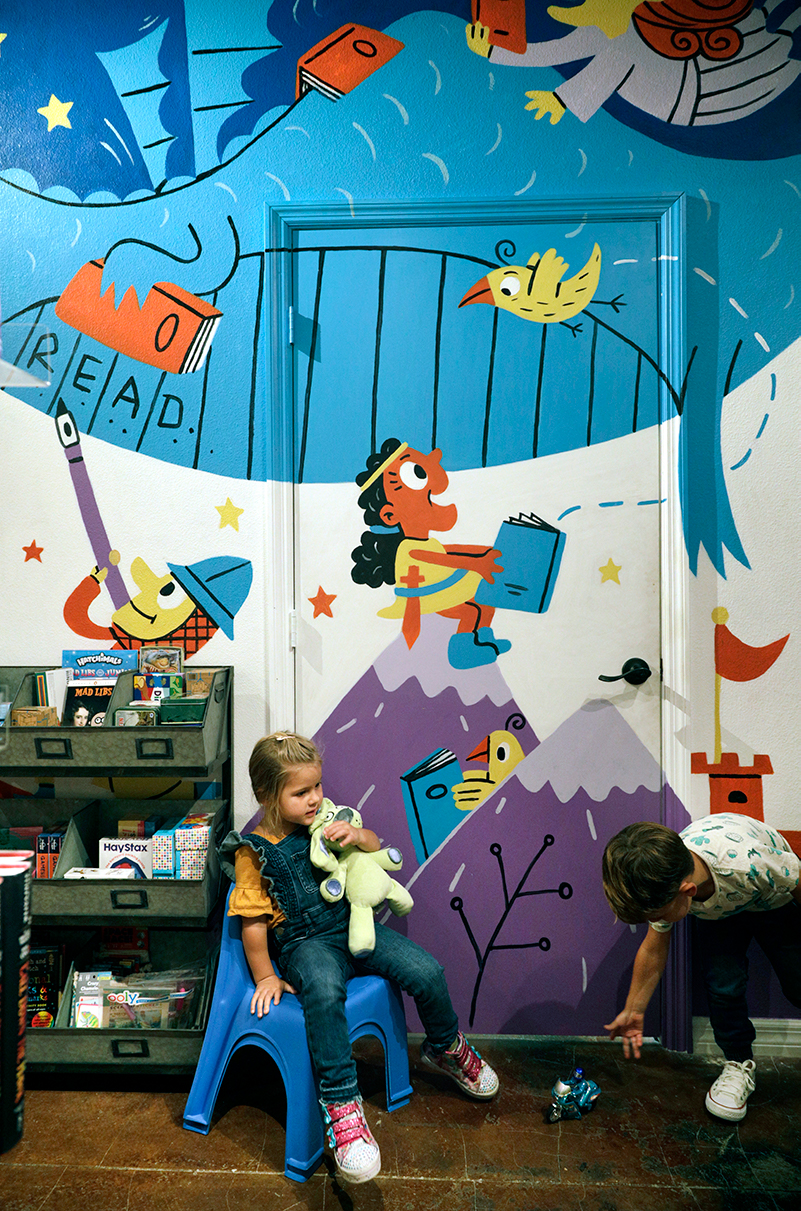
BUILDING CREDIBILITY
It was a struggle just to get an appointment, Zimmerman says, because “bookstores come and go, and everybody is opening a bookstore in their backyard or garage — so major publishers are skeptical of new bookstore owners.” Even more sobering, Zimmerman discovered that she was living in fly-over country as far as big publishers were concerned.
“We hadn’t had an independent bookstore in this area for 25 years,” she says. “They fly over Orlando to Miami, then fly over Orlando again to Atlanta. Orlando, to them, is Disney World. There is no town called Orlando.”
On her next visit, in 2015, “I felt like I was a representative of the economic development commission. They wanted to see numbers. I had graphs and charts. I mean, the presentation was thorough. They were impressed. They were shocked. But they said we still weren’t a major market as far as they were concerned.”
On her third visit, Zimmerman talked more about the area’s cultural amenities — including Rollins College and the museums in Winter Park as well as the new Dr. Phillips Center for the Performing Arts in downtown Orlando. Eventually, her message got through.
“Every year I went up, there’d be more people in the room.” she says. “They finally started inviting the real publicists to attend. That’s when I knew I’d cracked the ceiling.”
One day last year, Zimmerman got an unexpected phone call from a publicist at Hachette, publisher of The President Is Missing, co-authored by James Patterson and former President Bill Clinton. “They said Bill Clinton wanted to come to Orlando, and they needed a facility that could hold a thousand people,” Zimmerman says.
Writer’s Block holds 125, tops. So Zimmerman arranged for the Patterson-Clinton event to be held in the Winter Park High School auditorium and brought the Orlando Sentinel aboard as a co-sponsor. Shortly thereafter, that same connection brought former CBS Evening News anchor Scott Pelley (Truth Worth Telling) and best-selling romance novelist Elin Hilderbrand (What Happens in Paradise).
Patterson and Clinton spoke before a full house, as did Hilderbrand, who appeared at Quantum Leap Winery in Orlando. Pelley, whose presentation was at Rollins, nearly filled the Bush Auditorium. The crowds warmed Zimmerman’s anxious heart.
“I get on a soapbox about this,” says Zimmerman. “You need to come to events. When I go up to New York, I have to prove to them that audiences come to the events. I can tell them all day that we’re turning into a big city, but if they send an author and nobody comes, they’re not going to send any more authors.”
The people who have known Lauren Zimmerman all her life would be surprised if the architect-turned-attorney-turned-bookseller — who always does what she says she’ll do — ever let that happen.
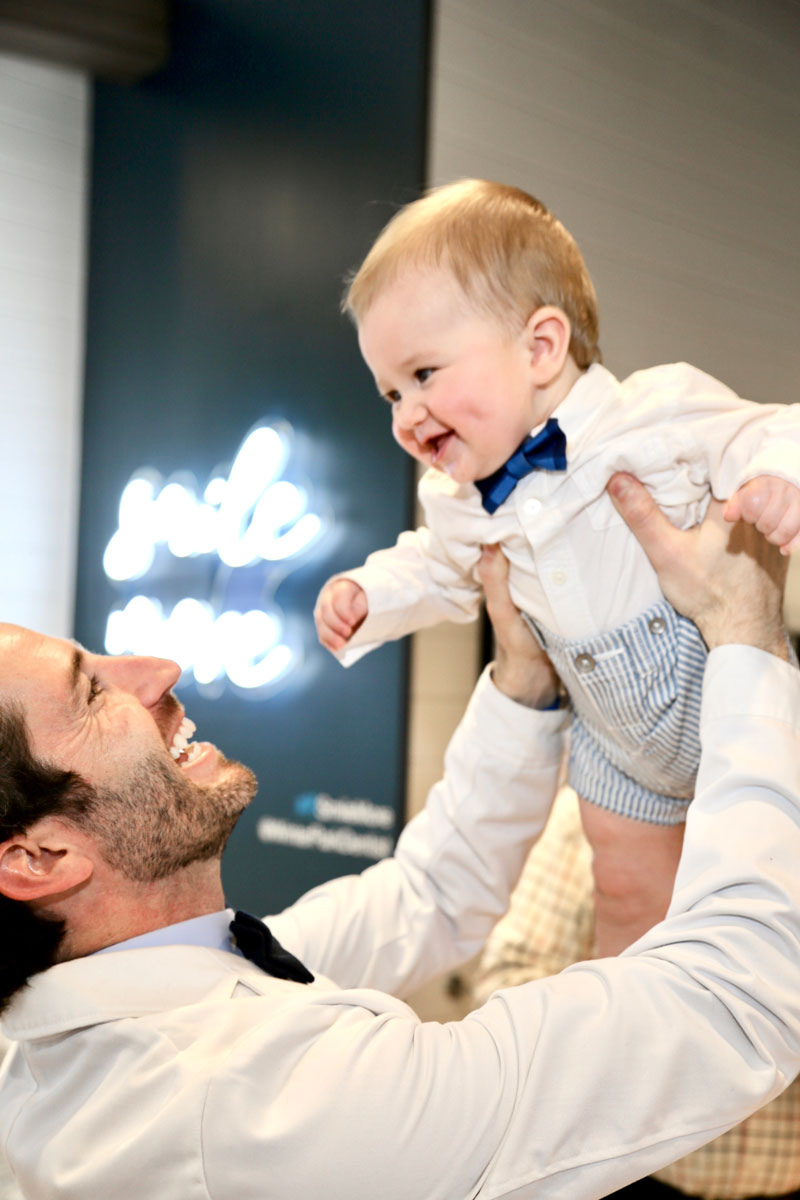
INTRODUCING WINTER PARK-STYLE SMILES
Most folks in the 1930s — except perhaps movie stars — didn’t have the wide, white smiles that you see today. “Be grateful you weren’t a kid then,” says Dr. Drew Byrnes, the bearded, bowtie-wearing dentist who took over a venerable Winter Park practice in 2014 and reshaped it as Park Smiles.
“[In the 1930s] there probably was no air conditioning, so any dental office smells you can think of, multiply that,” says Byrnes. “Novocain wasn’t as common or effective then. There were different kinds of drills that weren’t as effective — belt-driven with a lot of rotary going on. There may have been some smoke coming out of the equipment.”
Most certainly, Byrnes adds, there would have been a spit bucket next to the chair. And because gloves weren’t normally used, the dentist “would have his bare hands in your mouth.”
No wonder a visit to the dentist was so frightening for the generation that won World War II. And for subsequent generations as well, despite improved equipment and refined techniques. Byrnes, 33, even admits to having dreaded dental visits as a youngster.
Fast forward 80 years to Park Smiles, with a new facility on Fairbanks Avenue that offers a “Comfort Menu” of amenities that include internet radio, Bluetooth headphones, massage chairs, warm scented towels and cozy blankets.
The hallways are bathed in white noise to mask sounds emanating from exam rooms where televisions that stream Netflix and Apple TV are mounted on the walls at eye-level for reclining patients. The welcome area has a coffee bar.
“We took everything that looked clinical and tried to get rid of it or hide it to create a non-threatening environment,” Byrnes says. “Those big old lights that come down from the ceiling? We got rid of those and installed indirect light.”
A year after he graduated from the University of Florida College of Dentistry, Byrnes — who was born in Winter Park and raised in Altamonte Springs — took over the practice of retiring dentist Dr. Alan Price, who led the effort to fluoridate the city’s water supply in 1983. (Yes, there was opposition to fluoridation.)
The practice, then located on Knowles Avenue, goes much further back than that. It was started in 1939 by Dr. Wilbur Jennings, a 1927 graduate of Rollins College and a former owner of the city’s iconic Capen-Showalter House. Jennings and his wife, Edith, were for years prominent in local civic affairs.
So Park Smiles — that’s the name Byrnes gave the practice in 2016 — boasts deep Winter Park roots (no pun intended) and is almost certainly the oldest continually operating dental office in the city. In fact, Byrnes says, his patients include children and grandchildren of patients from the practice’s early years.
Byrnes and his wife, Julie, whom he met at the University of Florida, quickly fell in love with their new neighborhood. They lived in an apartment complex on Park Avenue across from their church, St. Margaret Mary. They later moved to another apartment but remained within walking distance of Park Smiles.
Julie, 30, a Coral Gables native, found Park Avenue “happier than Disney World — genuine happiness.” If it were possible, Drew says, “we would have stayed in downtown Winter Park forever.”
That hope was dashed when Price, who kept ownership of the building after retiring, decided to sell the property. Byrnes searched in vain for another space on or around Park Avenue, but found that the main obstacle was — surprise — parking.
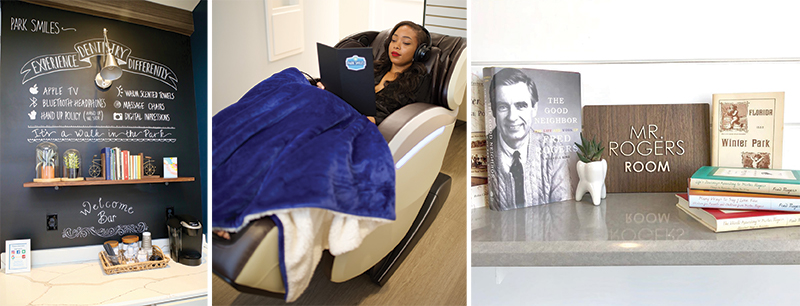
Byrnes even toyed with valet service before reluctantly extending the search beyond the downtown core. That search ended on west Fairbanks Avenue, next to a 4 Rivers Smokehouse.
But Byrnes realized that to fulfill his vision of how a dental practice ought to look and operate, he’d have to build a new facility from scratch. “Our new office isn’t just a game-changer for Park Smiles, but it’s a game-changer for dentistry as a whole,” he says. “We aim to change the dental experience.”
A rundown bar and hulking billboard were razed to make room for a gleaming Aegean blue-and-white facility with state-of-the-dental-art technology and a spa-like ambience. That welcoming vibe reflects the influence of Julie, an interior designer who found her career binge-watching HGTV as a teen.
The couple now lives in a vintage Orwin Manor bungalow with their month-old son, Drew Jr.
“We made sacrifices to make this happen,”
Byrnes says. “We were seeing a lot of our friends buying their first homes and making big life moves. We decided to invest in the future of our practice — to give something amazing to our patients and the city; something that we can be proud of.”
The practice — which also includes Dr. Eric Holtz — offers general and cosmetic dentistry. “We’re a guilt-free office,” Byrnes insists. “I don’t care if it’s been six months or 16 years since your last dental visit. We’ll not make you feel bad for coming back and promise to make it as easy as a walk in the park.”
Byrnes, who says his professional calling was confirmed by dental mission trips to South America, has turned the new offices into an homage to the downtown Winter Park he never wanted to leave.
Interior walls are lined with large photographs of iconic local buildings and scenes. Exam and treatment rooms carry city-specific names: Kraft Azalea Gardens, Hannibal Square, Central Park, Rose Garden, Emily Fountain, Rollins College and Mister Rogers.
There’s even a family room where children can watch TV or play games while mom and dad are getting their teeth cleaned. Posted on the wall are the practice’s core values, the first of which is: “Always do the right thing.”
— Greg Dawson


